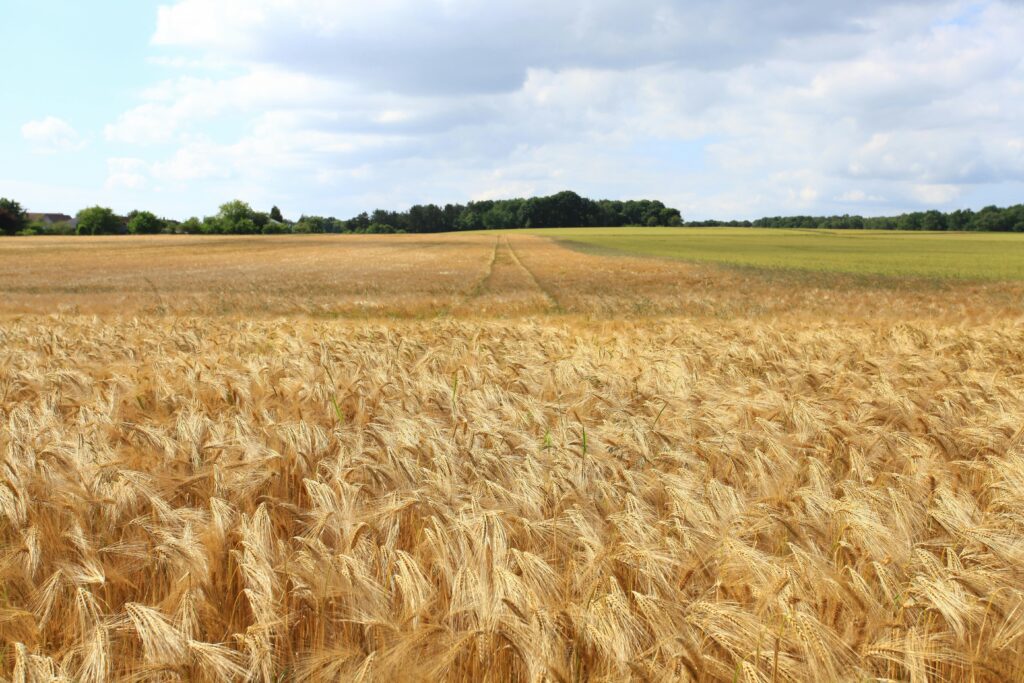Table of Contents
Introduction
Agribusiness In an increasingly interconnected world, agribusiness stands out as a vital sector that not only feeds the global population but also offers numerous opportunities for personal and professional growth. Agribusiness encompasses a wide range of activities related to agriculture, including production, processing, distribution, and marketing of agricultural products.
As the demand for food continues to rise due to population growth and changing dietary preferences, the agribusiness sector is poised for significant expansion.This blog will explore the various dimensions of agribusiness, its importance in the economy, career opportunities it presents, personal development through engagement in this field, and the challenges faced by professionals. By understanding the multifaceted nature of agribusiness, you can appreciate how it serves as a key to personal and professional success.
Definition
Agribusiness refers to the business sector encompassing all activities involved in the production, processing, distribution, and marketing of agricultural products. It includes a wide array of operations—from farming and livestock management to food processing and retail.
The term combines “agriculture” and “business,” highlighting the economic aspect of agricultural practices.Agribusiness is not limited to traditional farming; it also involves various stakeholders such as suppliers of seeds, fertilizers, equipment manufacturers, food processors, wholesalers, retailers, and consumers. This interconnected network plays a crucial role in ensuring that food reaches consumers efficiently and sustainably.
Scope of Agribusiness
The scope of agribusiness is vast and diverse. It includes several sectors:
- Crop Production: Involves growing fruits, vegetables, grains, and other crops.
- Livestock Farming: Encompasses raising animals for meat, dairy, eggs, and other products.
- Food Processing: Involves transforming raw agricultural products into consumable goods (e.g., canning vegetables or processing meat).
- Distribution: Covers logistics related to transporting agricultural products from farms to markets.
- Retail: Involves selling agricultural products directly to consumers through supermarkets, farmers’ markets, or online platforms.
The global agribusiness market is substantial and continues to grow due to increasing consumer demand for food security and sustainable practices. According to reports from organizations like the Food and Agriculture Organization (FAO), the agribusiness sector is expected to expand significantly over the coming decades.

2: The Importance of Agribusiness in the Economy
- Economic Contribution
Agribusiness plays a critical role in national economies worldwide. It contributes significantly to gross domestic product (GDP) and employment rates in many countries. For instance:
- In developing countries, agriculture often accounts for a large percentage of GDP and employs a significant portion of the population.
- Even in developed nations, agribusiness remains a vital economic driver by providing jobs in various sectors related to agriculture.
According to the U.S. Department of Agriculture (USDA), agriculture contributed approximately $1 trillion to the U.S. economy in recent years—demonstrating its substantial economic impact.
Role in Food Security
Agribusiness is essential for addressing global food security challenges. With the world’s population projected to reach nearly 10 billion by 2050, there is an urgent need for innovative solutions that increase food production while ensuring sustainability.
Agribusinesses play a crucial role in developing new technologies that enhance crop yields, improve livestock health, and reduce waste throughout the supply chain. By investing in research and development (R&D), agribusinesses can create more resilient food systems capable of withstanding climate change impacts and other challenges.


Innovation and Technology
Technological advancements have revolutionized agribusiness over recent years. Innovations such as precision agriculture—utilizing data analytics, GPS technology, and drones—allow farmers to optimize their operations by making informed decisions about planting schedules, irrigation needs, pest control measures, and resource allocation.
Additionally, biotechnology has led to significant breakthroughs in crop genetics—resulting in higher yields and improved resistance to pests or diseases. These innovations not only enhance productivity but also contribute positively towards environmental sustainability by minimizing resource usage.
3: Career Opportunities in Agribusiness
- Diverse Career Paths
The agribusiness sector offers diverse career opportunities across various fields:
- Farm Manager: Responsible for overseeing daily operations on farms—including crop planning, labor management, budgeting, etc.
- Agricultural Economist: Analyzes economic trends affecting agriculture—providing insights that inform policy decisions or business strategies.
- Marketing Specialist: Focuses on promoting agricultural products—developing marketing campaigns that connect consumers with local farmers.
- Food Scientist: Works on improving food safety standards while developing new products or processes within food manufacturing.
- Supply Chain Manager: Ensures efficient movement of goods from producers through processors down towards retailers—optimizing logistics operations along the way.
These roles highlight just a few examples; numerous other positions exist within this dynamic industry!
Skills Required
To succeed in agribusiness roles requires specific skills:
- Financial Management: Understanding budgeting processes helps ensure profitability while managing resources effectively.
- Communication: Strong communication skills are essential for collaborating with diverse stakeholders—from farmers to consumers.
- Problem-Solving: The ability to think critically enables professionals tackle challenges that arise unexpectedly within their operations.
Developing these skills enhances employability while fostering career advancement opportunities!
Education and Training
Aspiring professionals interested in pursuing careers within agribusiness should consider relevant educational pathways:
- Degrees: Many universities offer undergraduate programs focused on agricultural sciences or business administration with concentrations related specifically towards agriculture.
- Certifications: Specialized certifications can enhance credentials—for example; obtaining certification from organizations like Certified Crop Adviser (CCA) demonstrates expertise within specific areas!
Investing time into gaining knowledge/experience prepares individuals well for future roles!
4: Personal Development Through
- Building Professional Skills
Engaging with agribusiness fosters personal growth through skill development across various areas:
- Leadership: Managing teams requires effective leadership abilities—guiding individuals towards achieving common goals while motivating them along their journeys!
- Teamwork: Collaborating with others enhances interpersonal skills—building strong relationships across departments fosters innovation!
- Adaptability: Working within an ever-changing environment encourages flexibility—professionals must be willing adjust strategies based on market fluctuations or emerging trends!
These skills gained through hands-on experience benefit individuals not only within agriculture but also translate into valuable competencies applicable across diverse career paths!


Networking Opportunities
Networking plays an essential role within any industry—including agribusiness! Building connections among peers allows professionals access resources such as mentorships/job leads while fostering collaboration opportunities!Participating in industry conferences/events provides platforms where aspiring farmers meet experienced growers sharing insights gained throughout their journeys! These interactions inspire new ideas while reinforcing commitment towards achieving common goals related sustainability/prosperity!
Entrepreneurial Spirit
Agribusiness encourages entrepreneurship through innovation/new business models! Many successful entrepreneurs have emerged from this sector—developing unique products/services that meet consumer demands while addressing environmental concerns!For example; vertical farming startups utilize technology-driven approaches maximize yields within limited spaces—demonstrating how creativity can lead towards sustainable solutions!Engaging with entrepreneurial initiatives inspires individuals think outside traditional frameworks—encouraging them pursue ventures aligned with their passions/interests!
5: Challenges
- Market Volatility
Despite its numerous advantages; agribusiness faces challenges such as market volatility! Fluctuating prices for crops/livestock can impact profitability significantly!For instance; droughts or unexpected weather patterns may lead reduced yields causing supply shortages which drive up prices unpredictably! Understanding these dynamics helps professionals navigate uncertainties effectively!
Regulatory Issues
The agribusiness sector is subject regulatory scrutiny aimed at ensuring safety standards/protecting consumer interests! Navigating these regulations requires familiarity with local/national laws governing agriculture practices!Staying informed about changes within regulations allows businesses remain compliant while avoiding potential penalties associated non-compliance!


Sustainability Concerns
As environmental awareness grows; sustainability concerns have become paramount within agribusiness! Professionals must address issues related resource depletion/pollution caused by conventional farming methods!Adopting sustainable practices such as regenerative agriculture promotes soil health while reducing negative impacts on ecosystems! Embracing these principles not only benefits our planet but also enhances long-term viability within this industry!
6: Success Stories in Agribusiness
- Case Studies of Successful Agripreneurs
Highlighting individuals who have made significant contributions within this field serves as inspiration for aspiring professionals! For example:
- Will Allen: Founder of Growing Power—a nonprofit organization focused on urban agriculture promoting sustainable practices across communities nationwide!
- Kimbal Musk: Co-founder of Square Roots—a company dedicated urban farming utilizing container-based systems producing fresh produce locally!
These success stories illustrate how passion combined with innovation can lead transformative change within communities while contributing positively towards global food systems!
Lessons Learned from Their Journeys
Key takeaways from these journeys include:
- Embracing failure as part learning process encourages resilience!
- Fostering community engagement builds strong support networks essential navigating challenges successfully!
Conclusion
Agribusiness represents a dynamic sector offering immense potential for personal fulfillment alongside professional success! From enhancing global food security addressing environmental concerns—this field encompasses numerous opportunities waiting exploration!By engaging actively within this industry individuals cultivate thriving careers rooted deeply within sustainable practices benefiting both themselves society at large!If you’re considering embarking your journey into agribusiness—now is excellent time!
Explore local resources available near you—whether workshops hosted experienced growers nearby online courses designed specifically around sustainable agricultural practices! This blog post provides an extensive overview of how engaging with agribusiness contributes significantly toward both personal fulfillment as well as professional success! Each section elaborates on various aspects related directly back toward understanding why this movement matters today more than ever before!